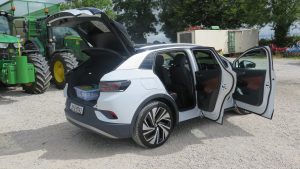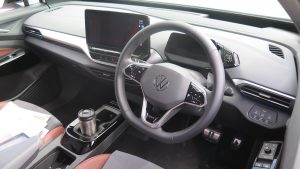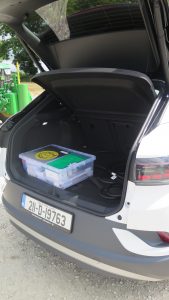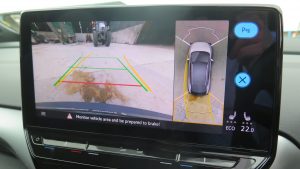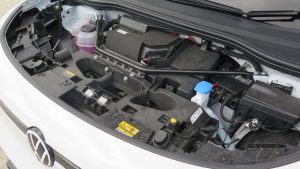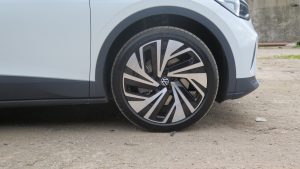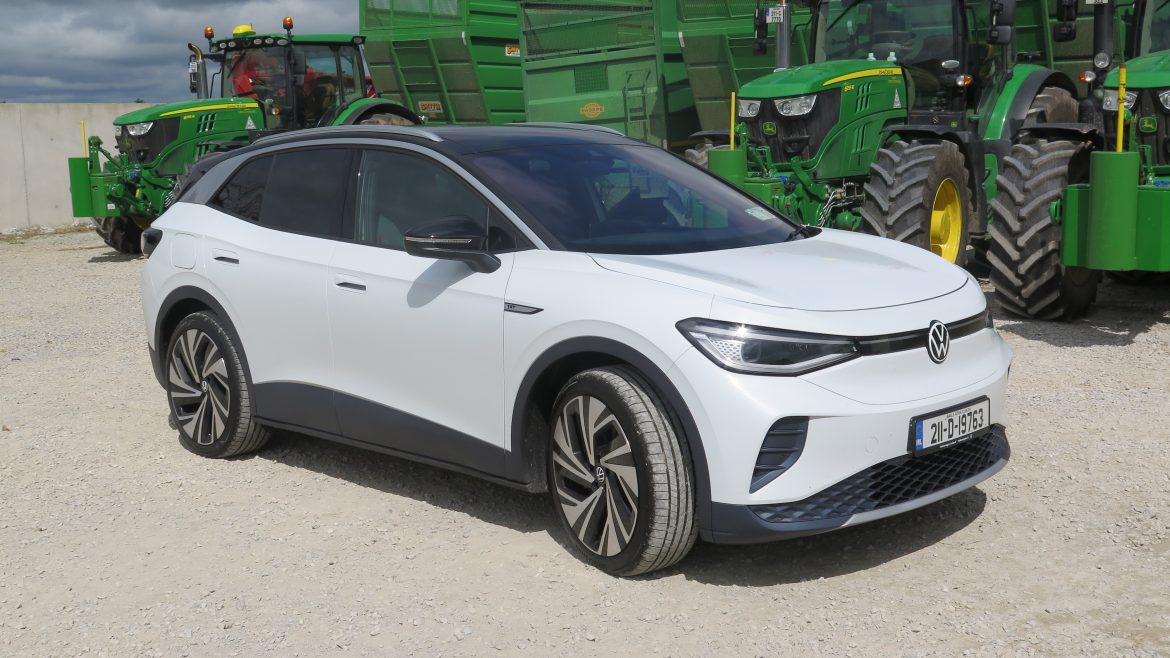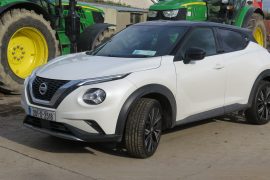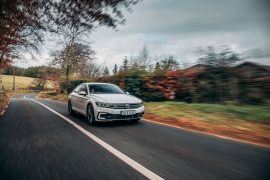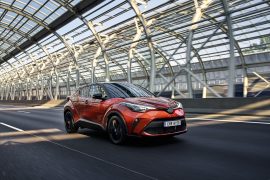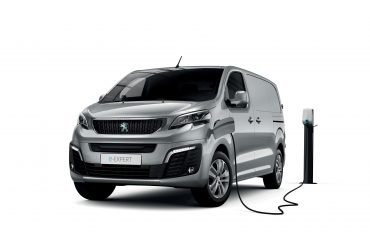It should be no surprise that the Volkswagen ID models have come to the top of the electric car market in 2021, at least I’m not surprised. These new generation electric cars from the Volkswagen Group have combined for me range ability with comfort and good looks that at last makes electric car driving more realistic even if they are still not really price affordable.
After previously driving Volkswagen’s ID.3, the bigger ID.4 SUV gives a more practical feel to the range, probably just because it’s a lot more spacious. There’s a solid car feel to this ID.4 that should be expected as it comes with a kerb weight of over 1.9 tonnes.
That’s equivalent in weight the mid-range Tiguan, to which it offers as an electric power alternative. So, if you are a Tiguan driver you should feel equally comfortable in the new ID.4.
This is a car that I drove for almost 1,400km over a few days, giving me lots of time to get comfortable with the controls and the car’s abilities. The Volkswagen ID.4 scores highly on the comfort side, there is a smoothness to the car that equivalent to the smoothness of the smaller ID.3.
To me, it seems as if at times the car floats; there’s a sense of a free-wheeling ability that gave me confidence in its range ability, which is theoretically high at over 500km. That fact took the anxiety out of journey from Leixlip to Fermoy, where comfortable cruising speeds of over 100km/hr meant my arrival came with plenty of range of spare.
For the return journey, I charged the car in the local Fermoy SuperValu car park during an extended meeting, followed by a coffee and I was back on the road again following some local calls in the Fermoy region and a later coffee break in Portlaoise for a 20-minute battery top-up. At no point was there any concern about not getting home.
That experience gave me the confidence to tackle a run to Rosslare later that week. So, following an overnight charge on my home charger that gave me a range of 445km in the battery, I took off with no concerns. While there I also met up with one of the very few ID.4 owners who have a towbar fitted. He spoke highly of the car’s boat-towing ability, considering it to be the best towing car that he had ever owned, even if the range takes a significant hit with a trailer behind.
That’s the long-range experience, the short range one is even easier. For most local drivers, somewhere close to the theoretical range can be achievable. This is a car that many drivers could live with as a once-a-week charge system.
The high seat position in the Volkswagen ID.4 added to the comfortable driving experience. This SUV has impressive rear legroom and good boot space that opens high. Folding down the rear seats gives van-like capacity but adding heavy loads will compromise on any electric car’s range.
The acceleration performance was also one of the impressive features of the car. Electric car acceleration from a high torque electric motors is a great experience. The smoothness of the pedal movement and the ease of setting the cruise control system made the car so easy to get used to.
My only slightly disconcerting issue with the Volkswagen ID.4 related to the car’s traffic sign recognition system, which automatically slows the car down to ensure that you stay within the sign’s speed limit. The system is very effective, maybe too much so.
I found on some motorway driving as I approached the slip roads, depending on the road angle and the position of the sign, the system could read the lower speed rating slip road sign, automatically slowing the car when driving on the motorway inside lane, while I had no intention of taking the slip road. This may be a setting issue, but it can be disconcerting, especially on the first experience.
Electric cars are still too expensive and this Volkswagen ID.4 at €48,089 after grants for private buyers is more expensive than the equivalent Tiguan. The price is still putting more buyers off than the range issue, especially when cars such as the Volkswagen ID.4 can aim for over the 500km mark.
After driving the all-electric Volkswagen ID.4, I would be surprised if you were not as impressed as I was. The rear-wheel-drive system and the overall weight provided by the low-slung battery pack, gives this car a huge desirability lead over some others, helped by the VW badge on front.
| Volkwagen ID.4 Electric – specifications | |
| Engine | All electric |
| Engine power | 204bhp |
| Engine Torque | 310Nm |
| 0 – 100km/hr | 8.5 seconds |
| Economy | 17.4kWh/100km |
| Fuel Tank Capacity | 0 litres |
| CO2 emissions | 0g/km |
| Range Theoretical | 517km |
| Charging Time | 7hr 30min |
| Road Tax Annual | A €120 |
| Main Service | 12 months or 30,000km |
| Euro NCAP Rating | 5 Star (2020) |
| Turning Circle Kerb to Kerb | 10.2m |
| Kerb Vehicle Weight | 1968kg |
| Towing rating | 1000kg |
| Luggage Capacity | 543/1575 litres |
| Warranty | 3 years on 8 years on battery 160,000km |
| Entry Price | €48,089 after grants & delivery |
